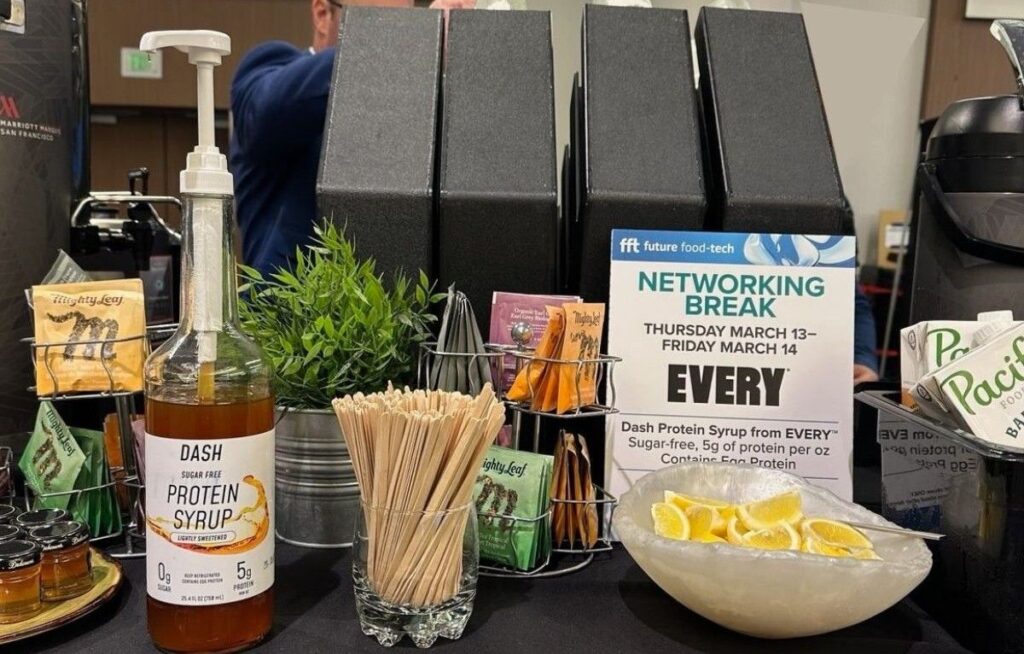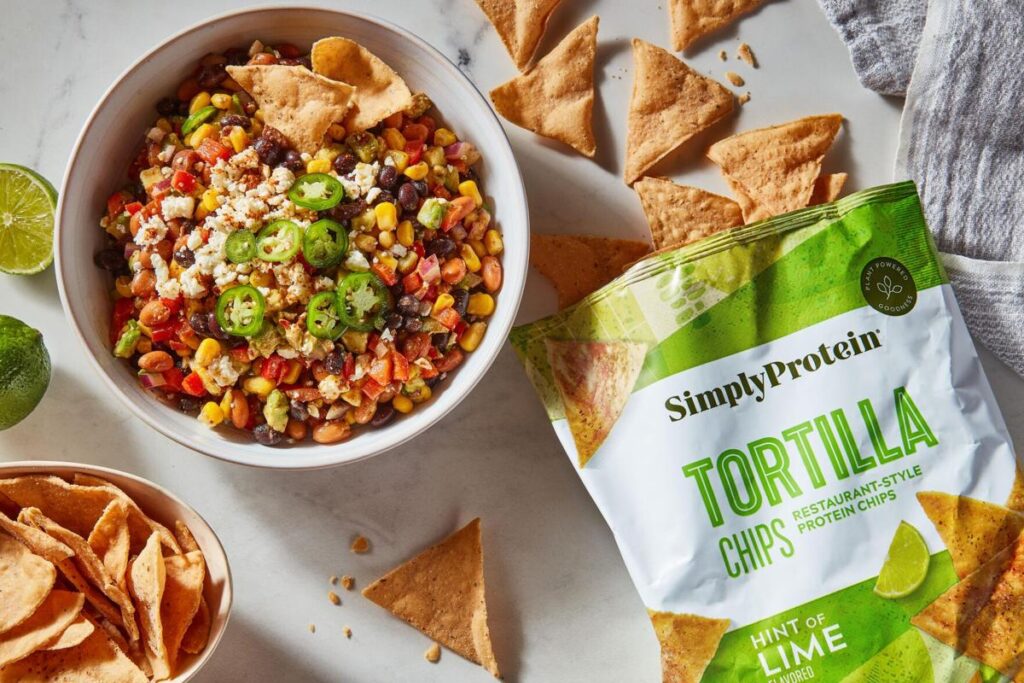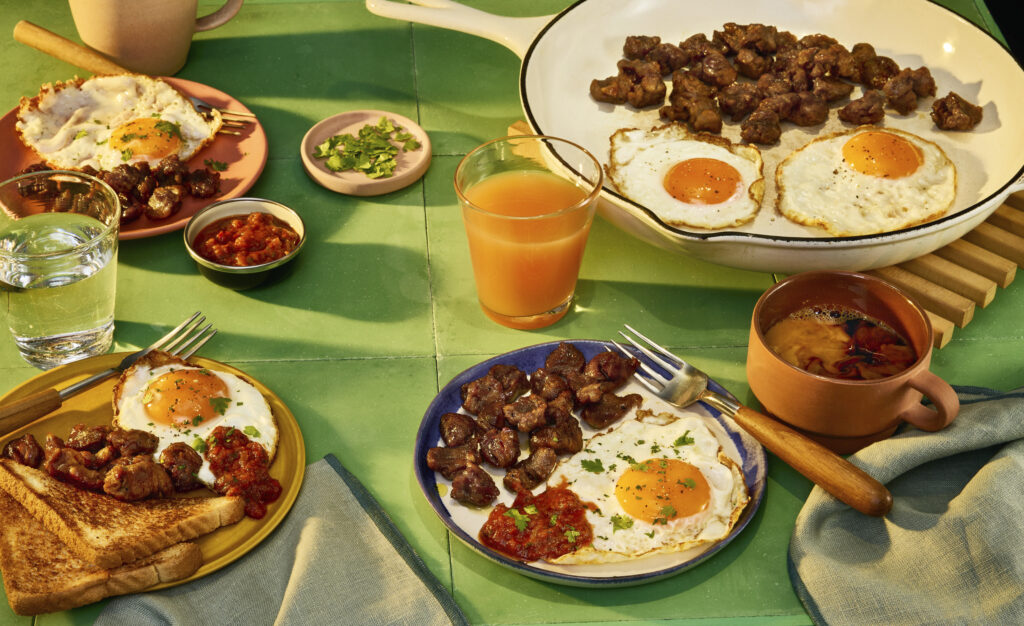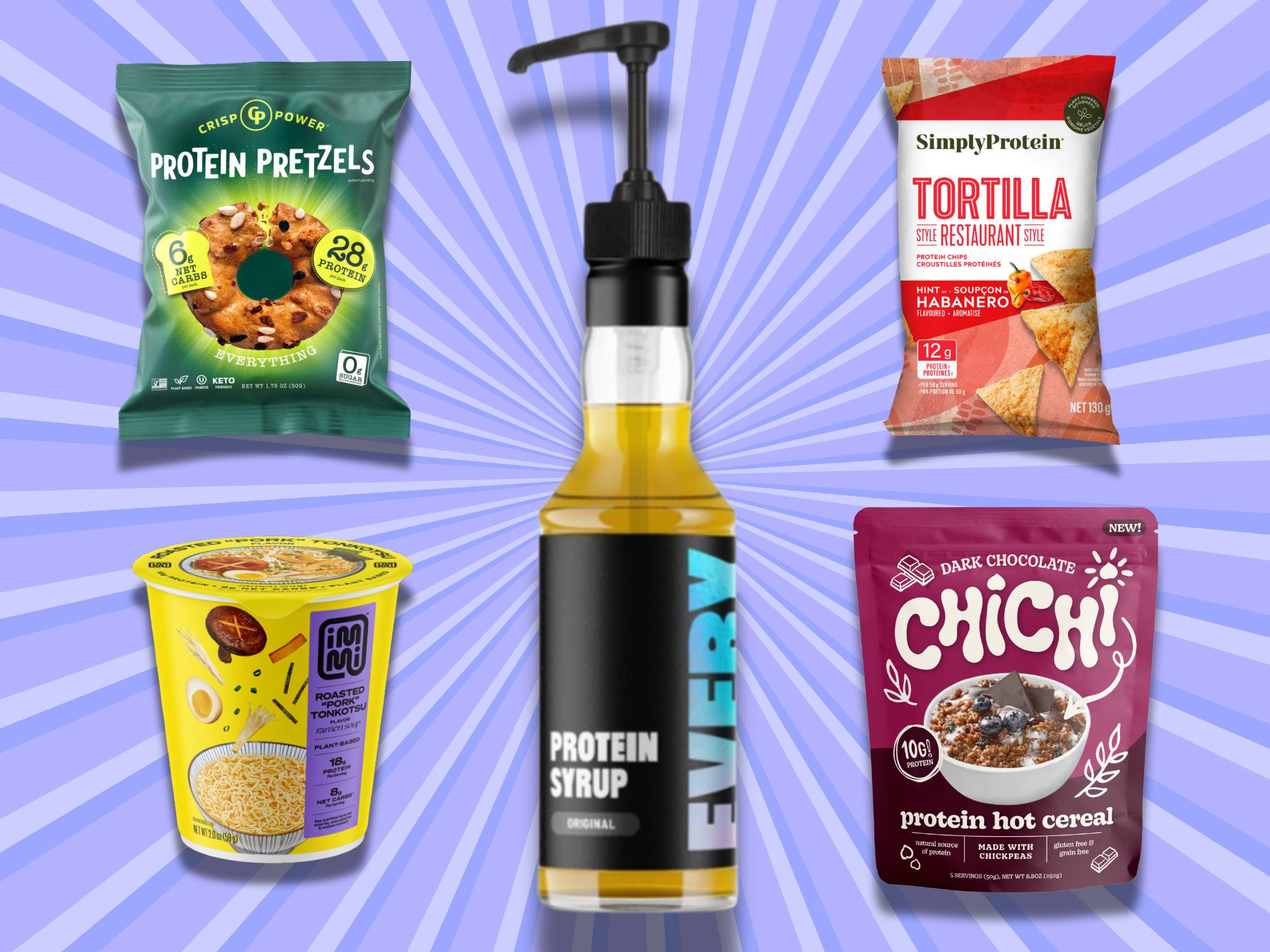Trend Report: From Syrups to Cereal, Protein is Everywhere – These Startups Make Sure It Doesn’t Cost the Earth
6 Mins Read
We may be overconsuming protein, but the global appetite for the nutrient continues to grow – and future food brands are listening.
Protein-enhanced coffee may have been around for a few years, but how often do you find protein in your simple syrup?
Brands are continuing to find ways to deliver America’s favourite macronutrient. The number of people trying to consume more protein has been steadily increasing in the US, from 59% in 2022 and 67% in 2023 to 71% in 2024, according to a 3,000-person survey.
The same poll found that 94% of these consumers source protein from foods and 25% from beverages, compared to just 18% who rely on supplements. At the same time, a quarter of Americans are concerned about the health impact of animal proteins.
This has left future food brands – those producing proteins from plants, microbes, animal cells, or even air – with a huge opportunity. And it seems like they’re listening.
Can protein syrups change the game for coffee?

At the Future Food-Tech event in San Francisco (March 13-14), California’s The Every Company showcased its new protein syrup to attendees.
The startup uses precision fermentation to make recombinant egg proteins, and has received a ‘no questions’ letter from the Food and Drug Administration for three proteins, including Every EggWhite (which contains animal-free ovalbumin) and a nearly transparent Every Protein (bioidentical to glycoprotein).
Last year, at the IFT Expo Startup Pavilion, The Every Company unveiled Every OvoBoost, a neutral-tasting, colourless protein ingredient with low viscosity and zero sugar. This was exhibited in a protein syrup for cold brew coffee.
This evolved into the Dash Protein Syrup seen at all coffee stations at Future Food-Tech this month. The sweetener contains 5g of recombinant egg protein per ounce, with the added benefit of being sugar-free.
“The enthusiasm around our protein syrup was electrifying, and the feedback we received was nothing short of amazing,” the company noted after the event. And now, it is bringing the ingredient to market.
“We’re about to pour protein into places it’s never been before,” The Every Company wrote on social media last week. “We’re shaking up the functional beverage category as we introduce the world’s first protein-boosted beverage syrup to consumers.”
It is launching the syrup as part of a protein mocha and protein matcha latte at wellness retailer Earthbar, where it will be available for a limited time in several locations across California.
“With OvoBoost, we’ve created a game-changing ‘Protein Pump’ that allows for easy protein-boosting in almost any kind of drink,” said Arturo Elizondo, co-founder and CEO of The Every Company. “Whether it’s black coffee, carbonated soft drinks, tea, water – you can now boost them with protein.”
He added: Our protein syrup is truly a first-of-kind industry disruptor as consumers continue to demand more convenient ways to add protein to their diets without the added calories, chalkiness, or compromises.”
A protein expo

The Every Company’s move to pack protein inside coffee syrups is reflective of the macro trend in the food and beverage industry: if there’s a way to add protein to an everyday food, brands are lining up to do so.
This was evident at Natural Products Expo West trade show in Anaheim, California last month. Famed wholegrains food brand Bob’s Red Mill expanded its Protein Oats line with an overnight oats range in blueberries and cream and vanilla almond flavours. Interestingly, the protein comes from a particular crop of oats that have been bred to produce higher amounts of the nutrient, as opposed to a separate ingredient.
Speaking of breakfast, Stoked Oats exhibited its Protein Oat Cereal (which will roll out at Sprouts later this year). The Cheerios-like product line contains 5g of protein per serving. And ChiChi Foods updated its packaging from ‘Grain Free Hot Cereal’ to ‘Protein Hot Cereal’ in response to consumer attitudes – each serving of its chickpea cereal contains 10g of protein.
Also at Expo West, SimplyProtein unveiled new candy-like bars with 10g of plant protein per 45g serving, as well as two new flavours of its pea-protein-boosted tortilla chips (with 7g of protein per 100g).
Meanwhile, New York-based brand Crisp Power gave attendees a taste of its patent-pending protein pretzels. Containing wheat protein, carob seed protein, and soy protein isolate, they boast 28g of protein and 36% of your daily recommended intake of fibre per pack.
Protein for one, protein for all – but what about the climate?

Americans overconsume protein. Men are eating 31% more than what’s recommended, and women 12%. At the same time, 95% are not getting enough fibre into their diets, which is crucial to their gut microbiome and general wellbeing.
The protein craze shows no sign of slowing down anytime soon. So one way for companies to give people both what they want (protein) and what they need (fibre) is by focusing on alternative proteins, which have tons more fibre than animal-sourced versions.
This is the focus of products like Impossible Foods’s new Steak Bites (21g of protein and 3g of fibre per serving), Immi’s vegan cup noodles (18g of protein, 10g of fibre per pack), and Cocojune’s high-protein Greek coconut yoghurts (8g of pea protein, 2g of fibre per 5oz pack) – all of which were featured at Expo West.
Numerator data shows that the demand for these nutrients will continue to grow, with 39% and 28% of Americans tracking protein and fibre, respectively, more closely in their diets in 2025 (a six-point increase over last year). A survey by Chobani similarly suggested that 85% of Americans want to increase their protein intake this year.
The protein explosion exposes a significant issue: with consumers demanding more and more protein, what happens to global greenhouse emissions?
The growing shift towards animal-based foods in the US – think crisps made from chicken breast, tortilla chips fried in tallow, shakes containing bone broth, and raw milk– means more land, more water and more intensive livestock farming.
Globally, livestock farming accounts for up to a fifth of all emissions and half the world’s farmland, and one recent study called it the leading cause of climate change. Plant-rich diets, on the other hand, can reduce emissions, land use and water pollution by 75% compared to meat-rich diets. Consumers may not see it this way. Sales of plant-based meat, meanwhile, fell by 9% between July 2023 and 2024.
This is why as food companies rush to meet the skyrocketing appetite for protein, it’s critical to use ingredients and supply chains that don’t take up vast amounts of land and energy or produce as much carbon, methane, and other gases into the atmosphere. The need to decarbonise our protein supply is more important than ever.
With the upcoming dietary guidelines putting plant proteins above meat and dairy, could alternative protein brands seize that opportunity?



